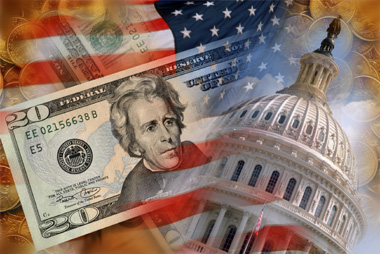At 244 pages, not counting supporting documentation, the 2014 Federal budget isn’t exactly light reading (by the way, those supporting documents add 2,176 pages). For that reason, let’s forgive the predominance of citizens who have never read the document. But, make no mistake – it’s full of “suggestions” that will keep both parties complaining for months.

For the American consumer, thesesuggestions have wide-reaching impact. No one is immune, and if you have done financially well for yourself, expect to feel even more pain.
The Obama administration’s budget proposal, not to be confused with the House of Representatives and Senate proposals, contains $3.77 trillion in spending and, according to The Hill, will add $5.3 trillion in new deficit spending over the next 10-year period.
Digging a little deeper, $580 billion in net revenue will come from higher taxes on high earning Americans. Fifty billion dollars is set aside for mass transit and road repair spending. Two hundred billion dollars in spending cuts will be divided equally between non-defense and defense programs.
If words like “billion” and “trillion” mean about as much to you as “house in the Hamptons,” you would probably be more interested in how this budget would affect you. Depending on which estimate you believe, Obama’s proposed budget would raise the tax bill of a household with a yearly income of $50,000 to $75,000 between $63 and $100 per year. However, that’s not all you should know.
Increased Taxes on Cigarettes
Do you smoke? If you do, you probably know that you pay a federal tax on each pack you purchase. Currently that tax is $1.01 per pack but the 2014 budget would raise it to $1.95—a 93% increase. For a one-pack-per-day smoker that will add an extra $343 per year to that expense.
New Inflation Calculation
Before you write this off as one of those heady economics topics you don’t care about, stick with us. The new calculation throws in an assumption. It assumes that if you went to the store and noticed that the price of chicken rose significantly, you would buy a cheaper meat like ground beef.
By making this assumption, the reported rate of inflation would be lower. That’s important because it would lower the yearly increase in programs like Social Security, Medicare and Medicaid, veterans’ benefits, and government pensions. It would save $230 billion over the next decade, but if you receive benefits from any of these programs, the new calculation would lower your yearly cost of living increases. However, to be fair, those decreases would be small.
Pre-School For Moderate and Low Income Families
President Obama first unveiled this program in his State of the Union address. He wants to provide 4-year-olds coming from low and moderate-income households access to high-quality pre-school. Who will pick up the bill for the program? Smokers. That extra tobacco tax will finance pre-school for 4-year-olds.
Buffett Rule
Remember when Warren Buffett famously said (and let’s face it, everything the man says becomes famous) that his secretary pays a higher effective tax rate than he does? That was the beginning of the Buffett Rule, which in Obama’s budget is called the Fair Share Tax.
This will require anybody with a minimum adjusted gross income of $1 million (adjusted each year for inflation) to pay at least 30% in taxes. This would produce between $53 and $100 billion in taxes over 10 years. There are exceptions for charitable donations and a host of other rules that go along with this, but the idea is to make the rich pay their fair share.
Cap on Retirement Savings
Save all you would like but you’re only going to get the tax advantages on your first $3 million. Seemingly, flying in the face of the nation’s push to put more away for retirement, this measure would raise $9 billion over 10 years. As interest rates rise, that $3 million would fall to as low as $2.2 million.
But, you might be thinking, “What do these two ‘suggestions’ – which are obviously geared toward the rich – have to do with me, the average earner?” Some have sounded the alarm that what starts at the top income levels could trickle down. Remember the alternative minimum tax that was originally a tax on upper income earners that now affects some in the middle class?
Will This Budget Pass?
In short, no. Not in its current form. The next step is for congressional negotiators to meet with White House officials in an attempt to combine the three budgets into something Washington (kind of) agrees on.
There is a bright side, though. This year Congress has some incentive. Both houses of Congress passed provisions that will withhold lawmakers’ paychecks if they don’t pass a budget resolution this year. On the other hand, one should remember that the sequester was supposed to be something so ridiculous that it would never become reality. How’d that work out?
The Bottom Line
If you’re concerned about these suggestions, no need to worry – at least not yet – and probably not ever. Assuming the country has a budget at some point this year (and that’s a big assumption), it will look nothing like the three now in existence. Congress agreed that leaving American travelers at airports because of the lack of air traffic controllers was a bad idea. Maybe there’s hope.





